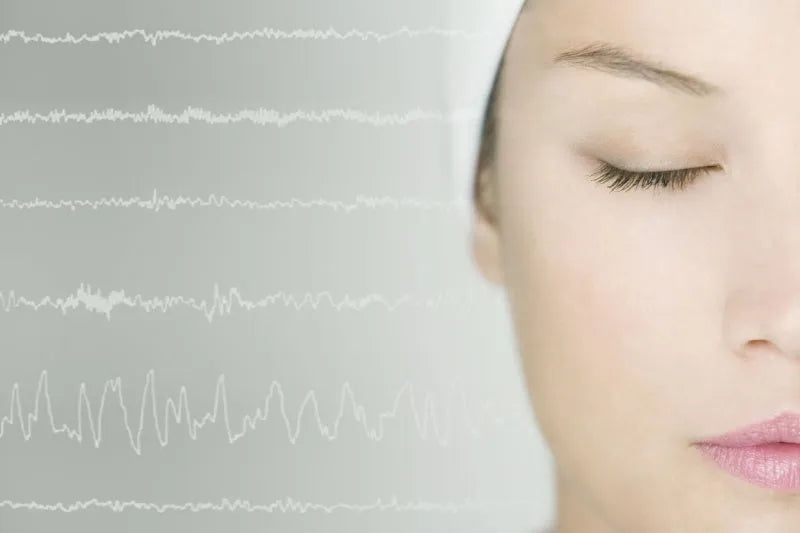
Sleep Tight, Treat Your Brain Right
Getting enough sleep isn’t just about feeling refreshed in the morning or dodging that dreaded mid-afternoon slump. Sleep plays a vital role in overall health, particularly in keeping your brain sharp as you age. In recent years, research has highlighted a startling connection: chronic sleep deprivation may significantly increase the risk of developing dementia. This post explores why sleep is critical for brain health, how a lack of sleep contributes to dementia, and practical tips—including using a sleep mask—for improving sleep quality and reducing your risk.
Why Sleep Is Essential for Brain Health

Sleep is not just a time of rest; it’s an active and restorative process for the brain. During deep sleep, your brain clears away toxins, including beta-amyloid, a protein linked to Alzheimer’s disease. Sleep also supports memory consolidation, helps regulate mood, and allows neurons to repair and reorganize.
However, when sleep is compromised—whether due to insomnia, sleep apnea, or lifestyle habits—these processes can’t function optimally. Over time, poor sleep quality can contribute to cognitive decline, setting the stage for dementia.
The Science Behind Sleep and Dementia

Studies have repeatedly shown that insufficient sleep impacts brain health in the following ways:
Toxin Accumulation: A lack of deep sleep hampers the brain’s ability to clear beta-amyloid and tau proteins. These proteins are known to clump together and form plaques, a hallmark of Alzheimer’s disease.
Inflammation: Poor sleep triggers chronic inflammation, which damages brain cells and accelerates aging.
Disrupted Memory Pathways: Sleep is when short-term memories are processed into long-term storage. Insufficient sleep disrupts this process, leading to cognitive issues over time.
Sleep Disorders as Early Warning Signs: Conditions like sleep apnea and restless legs syndrome have been linked to a higher risk of dementia. These disorders reduce oxygen levels and disrupt the natural sleep cycle, compounding the problem.
The Role of Light in Sleep Quality

One often-overlooked factor in sleep quality is light exposure. Artificial light—whether from a streetlamp, a glowing alarm clock, or your phone—can interfere with your body’s natural sleep-wake cycle (circadian rhythm). Light suppresses melatonin production, a hormone crucial for sleep initiation and maintenance.
Using a sleep mask can be a game-changer. By blocking out all sources of light, you create a pitch-black environment that promotes deeper and more restorative sleep. Look for sleep masks with features like adjustable straps and breathable materials to ensure comfort throughout the night
How to Optimize Sleep for Dementia Prevention

While wearing a sleep mask is a great start, improving sleep hygiene as a whole can significantly impact your brain health. Here are some practical tips:
Stick to a Consistent Sleep Schedule
Your body thrives on routine. Going to bed and waking up at the same time every day—even on weekends—reinforces your natural circadian rhythm, making it easier to fall asleep and stay asleep.
Create a Relaxing Bedtime Routine
Wind down before bed with calming activities like reading, gentle yoga, or a warm bath. Avoid screens at least an hour before bedtime, as blue light from devices can interfere with melatonin production.
Consider a Weighted Blanket

Like a sleep mask, a weighted blanket can enhance sleep quality. Its gentle pressure has been shown to reduce anxiety and promote deeper relaxation.
Optimize Your Sleeping Environment
- Keep it Cool: A bedroom temperature of 60-67°F is ideal for most people.
- Minimize Noise: Use a white noise machine or earplugs if external sounds disrupt your sleep.
- Upgrade Your Mattress and Pillows: Supportive and comfortable bedding can make a world of difference.
Watch What You Eat and Drink
Avoid large meals, caffeine, and alcohol in the hours leading up to bedtime. While alcohol might make you drowsy initially, it can disrupt REM sleep later in the night.
Exercise Regularly
Physical activity promotes better sleep and reduces dementia risk. Aim for at least 30 minutes of moderate exercise most days of the week, but avoid vigorous workouts close to bedtime.
Additional Strategies for Dementia Prevention

Sleep is just one piece of the puzzle when it comes to brain health. Incorporating other preventive measures into your lifestyle can further reduce your risk:
Prioritize a Brain-Healthy Diet
Adopt a diet rich in antioxidants, omega-3 fatty acids, and vitamins to protect against cognitive decline. The Mediterranean diet, which emphasizes fruits, vegetables, whole grains, and healthy fats, is particularly beneficial.
Stay Mentally Active
Challenge your brain with puzzles, reading, or learning a new skill. Social engagement is also critical—spending time with loved ones or joining clubs can keep your mind sharp.
Manage Stress

Chronic stress harms the brain. Incorporate stress-reducing activities into your daily routine, such as mindfulness meditation, deep breathing exercises, or spending time in nature.
Get Regular Health Check-Ups
Conditions like high blood pressure, diabetes, and high cholesterol can increase dementia risk. Regular screenings and prompt treatment can protect your brain.
Consider Supplements
Supplements like omega-3 fatty acids, vitamin D, and magnesium may support brain health. Consult your doctor to find out which supplements might be right for you.
The Power of Small Changes
It’s easy to overlook how much something as simple as wearing a sleep mask or tweaking your nightly routine can influence your long-term health. However, these small changes can add up to significant benefits, especially when it comes to preventing dementia.
By making sleep a priority and adopting brain-healthy habits, you’re not just improving your nights—you’re investing in a future of mental clarity, vitality, and independence. So tonight, as you slip on your sleep mask and settle into a peaceful bedtime routine, know that you’re doing your brain—and your future self—a tremendous favor.
Sleep well and take care of your brain. You deserve it.

